
Starting June 1st, 2023 Our warehouse fee will be $0.65/cubic foot per month
In effort to lower the warehouse storage fee during inflation, we have went narrow aisle racking.This construction took us four months but the project is finally completed. With narrow aisle racking, we are able to drop storage by 24%.We as partners will go through this inflation together.
10/02/2024
In today's global trade landscape, the transportation of international goods is not merely about moving items from point A to point B; it is a complex process that requires close coordination between sellers and buyers. When goods are being exported, the seller's responsibilities become increasingly critical, particularly in meeting shipping requirements prior to export.
One effective way to manage this process is through "Free Carrier" (FCA), one of the essential trade terms defined in the Incoterms. FCA is not only applicable to various modes of transport, from Less than Container Load (LCL) to Full Container Load (FCL) and air freight, but it was also updated in the latest Incoterms revision in 2024 to optimize the shipping process.
This article will delve into the different rules of FCA, when to apply it, and the benefits and drawbacks associated with this term in export operations.
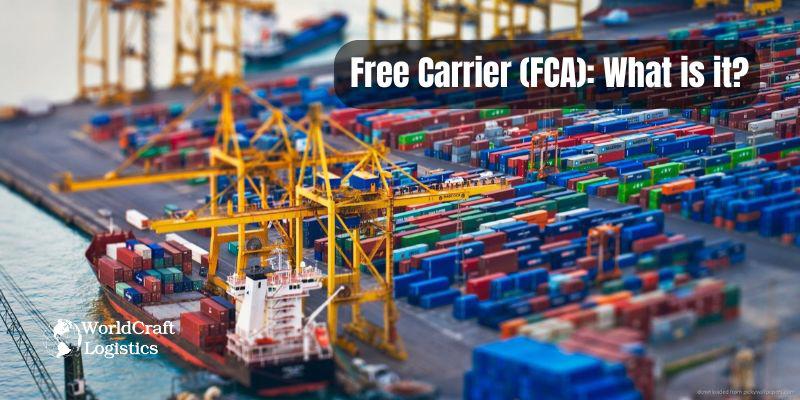
A free carrier is a trade term that specifies the seller’s responsibility to deliver goods to a location designated by the buyer. In this context, the term "free" indicates that the seller is obligated to transport the goods to a specific location where they will be handed over to a carrier. This location could be an airport, shipping terminal, warehouse, or another facility where the carrier operates. In some cases, it could even be the seller's own premises.
The seller covers the transportation costs and bears the risk of loss until the goods are handed over to the carrier. From that moment, all responsibility shifts to the buyer.
International transportation contracts often include abbreviated trade terms, or terms of sale, which outline key shipment details. These terms specify aspects such as the delivery time and location, payment arrangements, the point at which the risk of loss transfers from the seller to the buyer, and which party is responsible for covering freight and insurance costs.
To streamline the delivery process, the most widely used trade terms are known as international commercial terms, or Incoterms. Published by the International Chamber of Commerce (ICC), Incoterms are globally recognized standards. While they may resemble domestic terms like those found in the Uniform Commercial Code (UCC), subtle differences can exist in their official interpretations, you can search free carrier lookup on internet.
One common and widely used Incoterm is "Free Carrier" (FCA). This term has become a globally accepted standard for outlining delivery conditions. The FCA shipping terms were first introduced in the 1980 version of Incoterms and have been updated every decade since.
The term "Free Carrier" (FCA) under Incoterms 2024 is an important concept in international trade, defining key responsibilities between buyers and sellers. FCA dictates that the seller is responsible for delivering the goods to a location chosen by the buyer, typically a terminal, warehouse, or other transport hub where the carrier operates. It can even be the seller’s own facility if agreed upon.
Key Points of FCA Incoterms (2024):
Delivery Location: The seller must deliver the goods to the agreed-upon location where they will be transferred to the buyer’s designated carrier.
Risk Transfer: The risk of loss or damage to the goods shifts from the seller to the buyer once the goods have been delivered to the carrier.
Costs and Responsibilities: The seller covers all transportation costs and risks up to the point of delivery, after which the buyer takes on these responsibilities.
Customs and Export Clearance: The seller must handle any export clearance and documentation, while the buyer is responsible for import duties and related costs.
This Incoterm is frequently used in trade agreements where goods need to be transported to a carrier, making it a flexible and widely accepted option. Understanding FCA terms can help businesses navigate shipping contracts and minimize confusion over obligations.
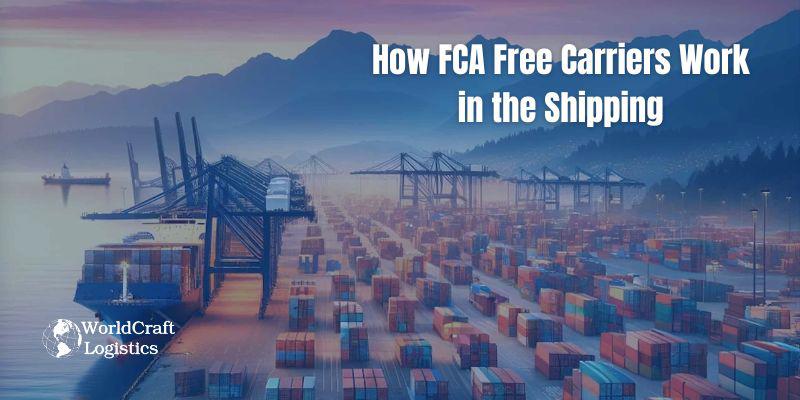
Buyers and sellers engaged in international trade can utilize FCA shipping terms to designate a transportation point, regardless of the number of transport modes involved in the shipment. However, the specified location must be within the seller’s country. It is the seller’s responsibility to ensure that the goods are safely delivered to this location, where the carrier could be any form of transportation, such as a truck, train, ship, or airplane.
Liability for the goods shifts from the seller to the carrier or buyer once the seller has delivered the goods to the agreed-upon location. The seller’s obligation ends once the goods reach the specified destination, but they are not required to unload them. If the seller’s premises are the delivery point, the seller may also need to ensure the goods are cleared for export from the United States.
Under FCA terms, the seller handles export documentation and licenses, relieving the buyer of these duties. However, the buyer is responsible for arranging the onward transportation. Once the goods are handed over to the carrier and title transfers, they become the buyer's asset.
It’s important to note that experts advise parties involved in international trade to consult a trade attorney or legal professional before incorporating trade terms like FCA into a contract.
The Free Carrier (FCA) Incoterm outlines specific responsibilities for both the buyer and the seller, ensuring clarity in international trade agreements. Here’s a breakdown of their obligations:
Delivery of Goods: The seller must deliver the goods to the agreed location, which could be a terminal, transport hub, or even the seller's premises. The seller is responsible for ensuring the goods are transferred to the carrier chosen by the buyer.
Export Clearance: The seller must handle all export documentation, licenses, and clearances required for the goods to leave the seller's country.
Costs and Risks: The seller covers transportation costs and bears the risk of loss or damage until the goods are delivered to the carrier at the specified location.
Packaging and Labeling: The seller is responsible for properly packaging the goods and labeling them in compliance with transportation requirements.
Carrier Arrangements: The buyer must select and arrange transportation for the goods from the delivery point onwards. They need to ensure the carrier is ready to receive the goods at the designated location.
Import Duties and Documentation: The buyer is responsible for import duties, taxes, and any required documentation for clearing the goods at their destination.
Risk Transfer: The buyer assumes all risk for the goods once the seller delivers them to the carrier. From that point, the buyer is liable for any loss or damage.
Payment: The buyer must make the agreed payment for the goods as specified in the contract.
The transfer of risk occurs when the seller hands over the goods to the carrier at the designated location. From this moment, the buyer is responsible for any potential issues with the goods during transportation.
FCA provides a flexible arrangement for both parties, clearly defining each side’s responsibilities and reducing potential misunderstandings in the trade process.
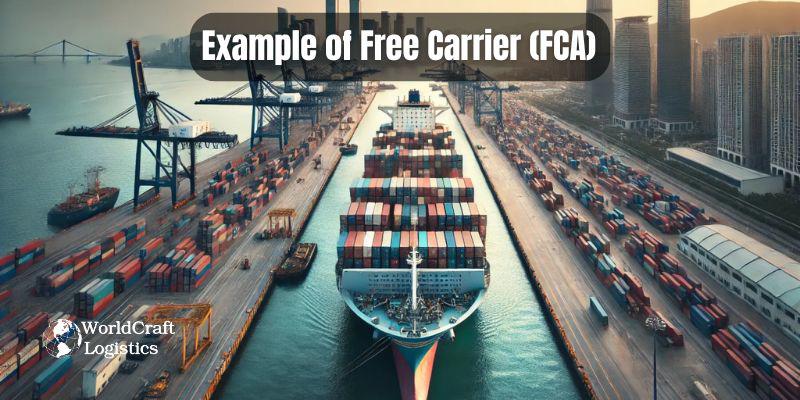
Imagine a U.S.-based electronics manufacturer, TechWave, selling computer components to a buyer in Germany. The buyer has chosen the Free Carrier (FCA) shipping terms for the transaction. Here’s how the FCA process unfolds:
Agreed Delivery Location: The buyer designates a transportation hub, such as the JFK International Airport cargo terminal in New York, as the delivery location where the goods will be handed over to the carrier. The buyer also arranges a shipping company to handle the transport from JFK Airport to Germany.
Seller’s Responsibilities (TechWave):
TechWave must transport the computer components to JFK Airport by the agreed date.
TechWave is responsible for packaging the goods and ensuring they are properly labeled.
TechWave handles all export documentation and ensures the goods clear U.S. customs.
Once the goods arrive at the designated terminal and are handed over to the buyer’s chosen carrier, TechWave’s responsibility ends. The risk of loss or damage shifts to the buyer at this point.
Buyer’s Responsibilities:
The buyer arranges for a carrier to pick up the goods from the JFK terminal.
The buyer is responsible for import clearance, duties, and taxes when the goods arrive in Germany.
The buyer assumes all risk and cost from the moment the goods are delivered to the carrier in New York.
In this scenario, TechWave only needs to ensure the goods reach the airport, are cleared for export, and are handed over to the buyer's carrier. The buyer takes over from there, covering the cost and risk of transporting the goods from the U.S. to Germany.
This example demonstrates how FCA terms clarify the division of responsibilities and risk between the seller and the buyer.
When engaging in international trade, it’s important to understand the differences between various Incoterms (International Commercial Terms), which define the responsibilities of buyers and sellers in international transactions. Two of the commonly used terms are Free Carrier (FCA) and Ex Works (EXW). Each term comes with specific conditions regarding the delivery of goods, risk transfer, and costs allocation.
Aspect | FCA (Free Carrier) | EXW (Ex Works) |
Seller’s Responsibilities | The seller delivers goods to the named place (e.g., terminal) and clears them for export. | The seller makes goods available at their premises, without export clearance. |
Buyer's Responsibilities | The buyer arranges transport from the named place onwards and assumes risk once goods are delivered to the carrier. | The buyer is responsible for the entire logistics chain, including export clearance and loading. |
Risk Transfer | Risk transfers when the goods are delivered to the carrier or named party. | Risk transfers as soon as the goods are made available at the seller’s premises. |
Costs | The seller bears costs until the goods are delivered to the named place; the buyer bears onward transportation costs. | The buyer bears all costs from the point the goods are made available at the seller’s premises. |
Loading of Goods | The seller is responsible for loading goods onto the buyer's chosen transport at the agreed location. | The buyer is responsible for loading the goods. |
Export Clearance | The seller clears the goods for export. | The buyer must handle export clearance and documentation. |
*Comparison in Practice:
Example of FCA: A company in China sells electronics to a retailer in Germany. The seller agrees to deliver the electronics to a port in Shanghai, and the buyer arranges for the ocean freight. The seller clears the goods for export, but risk transfers to the buyer once the goods are handed over to the carrier.
Example of EXW: A manufacturer in the U.S. sells machinery to a company in Mexico. The buyer is responsible for picking up the goods from the manufacturer’s factory, arranging transport, handling export paperwork, and assuming all risks and costs from the factory onward.
=> In summary, the major difference between FCA and EXW lies in the responsibility for transportation, risk, and costs. In FCA, the seller takes on more responsibility by delivering the goods to a specified location and clearing them for export, while in EXW, the buyer assumes full responsibility from the seller’s premises onward. Buyers and sellers should carefully choose the appropriate term depending on the level of responsibility and control they desire in the shipping process.
Buyer Wants More Control Over the Shipping Process
FCA is ideal when the buyer wants to manage the shipping logistics from the point where the seller delivers the goods to the named place (e.g., a port, terminal, or carrier’s location). This allows the buyer to choose the carrier, negotiate shipping rates, and coordinate transportation.
Seller Can Handle Export Formalities
FCA is suitable when the seller is capable of clearing the goods for export. Under FCA, the seller is responsible for handling export documentation and any customs procedures before delivering the goods to the carrier.
The Delivery Point is at a Convenient Location for the Seller
FCA works well when the delivery point is accessible to the seller, such as a nearby port, warehouse, or transportation terminal. This minimizes the seller’s responsibility for long-distance delivery but still ensures they handle the goods until they reach the named location.
Risk Sharing at a Specific Location is Preferred
FCA is advantageous if both parties agree that the risk should transfer at a designated location (e.g., when the goods are loaded onto the carrier’s truck or ship). This gives the seller responsibility until the handoff, while the buyer assumes risk beyond that point.
When Transportation and Logistics Are Complex
If the logistics chain is long or complicated, FCA can be beneficial because the seller delivers to a specific location, and the buyer can manage transportation for the remainder of the journey. This flexibility allows buyers to work with multiple carriers or intermediaries to ensure timely delivery.
Buyer is Unfamiliar with Shipping Logistics
FCA may not be appropriate when the buyer lacks experience with international shipping and logistics. The buyer is responsible for arranging the transport from the named location, so if they don’t have the expertise, it could lead to complications or additional costs.
Seller Doesn’t Want to Handle Export Documentation
If the seller is unable or unwilling to clear the goods for export (or if export regulations are complex in the seller’s country), FCA should not be used. Under FCA, the seller must take care of export formalities, and failing to do so can cause delays or non-compliance issues.
Buyer Prefers to Handle the Entire Process (EXW Might Be Better)
If the buyer prefers to handle the entire logistics process, including picking up the goods directly from the seller’s premises, Ex Works (EXW) might be a better choice. EXW shifts all the responsibility to the buyer, from pickup to final delivery, which can be advantageous if the buyer has a well-established logistics network.
Seller’s Delivery Point is Too Distant or Inconvenient
FCA may not be suitable if the named place of delivery (e.g., a port or terminal) is far from the seller’s premises, resulting in higher transportation costs or logistical difficulties for the seller. In this case, the seller might prefer an Incoterm like EXW, which reduces their involvement in the delivery process.
Risk Needs to Transfer Sooner or Later Than FCA Allows
If the parties want to transfer risk at a different point (e.g., before the goods are delivered to a terminal), FCA might not be the best option. For instance, FOB (Free on Board) transfers risk when the goods are loaded onto a vessel, which could be more suitable for ocean freight, while EXW transfers risk at the seller's premises.
Use FCA when the buyer wants more control over transport after the goods are delivered to a specified location, the seller is capable of handling export clearance, and both parties want to share responsibilities up to a specific delivery point. Avoid FCA when the buyer is inexperienced with shipping, the seller cannot manage export formalities, or if another Incoterm like EXW or FOB better suits the risk and cost distribution needs.
In the fast-paced world of international trade, selecting the right Incoterms can significantly impact your shipping logistics and overall efficiency. One of the essential terms to understand is Free Carrier (FCA). At Worldcraft Logistics, we specialize in navigating the complexities of global shipping, helping businesses optimize their logistics processes. This article explores the FCA Incoterm and how partnering with Worldcraft Logistics can enhance your shipping strategy.
At Worldcraft Logistics, we understand the intricacies of international shipping and the importance of choosing the right Incoterm. Here’s how we can assist you in optimizing your shipping logistics with FCA:
Expert Guidance: Our experienced team provides detailed insights into FCA and other Incoterms, helping you make informed decisions tailored to your shipping needs.
Comprehensive Logistics Solutions: We offer end-to-end logistics services, including export documentation, customs clearance, and freight forwarding, ensuring a seamless shipping experience.
Cost-Effective Strategies: By leveraging our extensive network of carriers and partners, we can help you find the most competitive shipping rates while maintaining high service standards.
Personalized Support: Our dedicated account managers work closely with you to understand your unique requirements and provide customized solutions that enhance your logistics efficiency.
Understanding and implementing the Free Carrier (FCA) Incoterm can significantly enhance your shipping logistics. By partnering with Worldcraft Logistics, you can optimize your international shipping processes, reduce costs, and improve overall supply chain efficiency. Let us help you navigate the complexities of global trade, ensuring your shipments are handled with expertise and care.
Contact Us Today! Ready to take your shipping logistics to the next level? Contact Worldcraft Logistics now to learn more about our services and how we can support your business in achieving its shipping goals.
No, FCA and FOB are different. FCA transfers risk at a named place where the seller delivers goods to a carrier, while FOB transfers risk once goods are loaded on board a vessel at the port of shipment. This distinction affects responsibilities and risk management in international shipping.
FCA involves the seller delivering goods to a carrier at a named place, after which the buyer assumes responsibility for transportation. In contrast, CIF (Cost, Insurance, Freight) requires the seller to cover shipping costs, insurance, and freight to the destination port, providing more extensive service to the buyer. This means that with CIF, the buyer has less responsibility until the goods reach the destination port.
The buyer pays for transportation from the named place after the seller delivers the goods to the carrier. Typically, the seller handles export formalities, but once the goods are with the carrier, all subsequent costs fall to the buyer, including freight, insurance, and any handling fees at the destination.
Payment terms (collection or advance) depend on the agreement between the buyer and seller; FCA itself does not dictate payment methods. In practice, buyers and sellers often negotiate these terms based on their trust level and transaction history, which can impact cash flow and risk.
Yes, FCA can be used for ocean freight, as well as other modes of transport, including air and land. This versatility makes FCA a suitable option for various shipping scenarios, allowing businesses to tailor their logistics strategies based on specific needs and preferences.
SEO
Digital Marketing/SEO Specialist
Simon Mang is an SEO and Digital Marketing expert at Wordcraft Logistics. With many years of experience in the field of digital marketing, he has shaped and built strategies to effectively promote Wordcraft Logistics' online presence. With a deep understanding of the logistics industry, I have shared more than 500 specialized articles on many different topics.
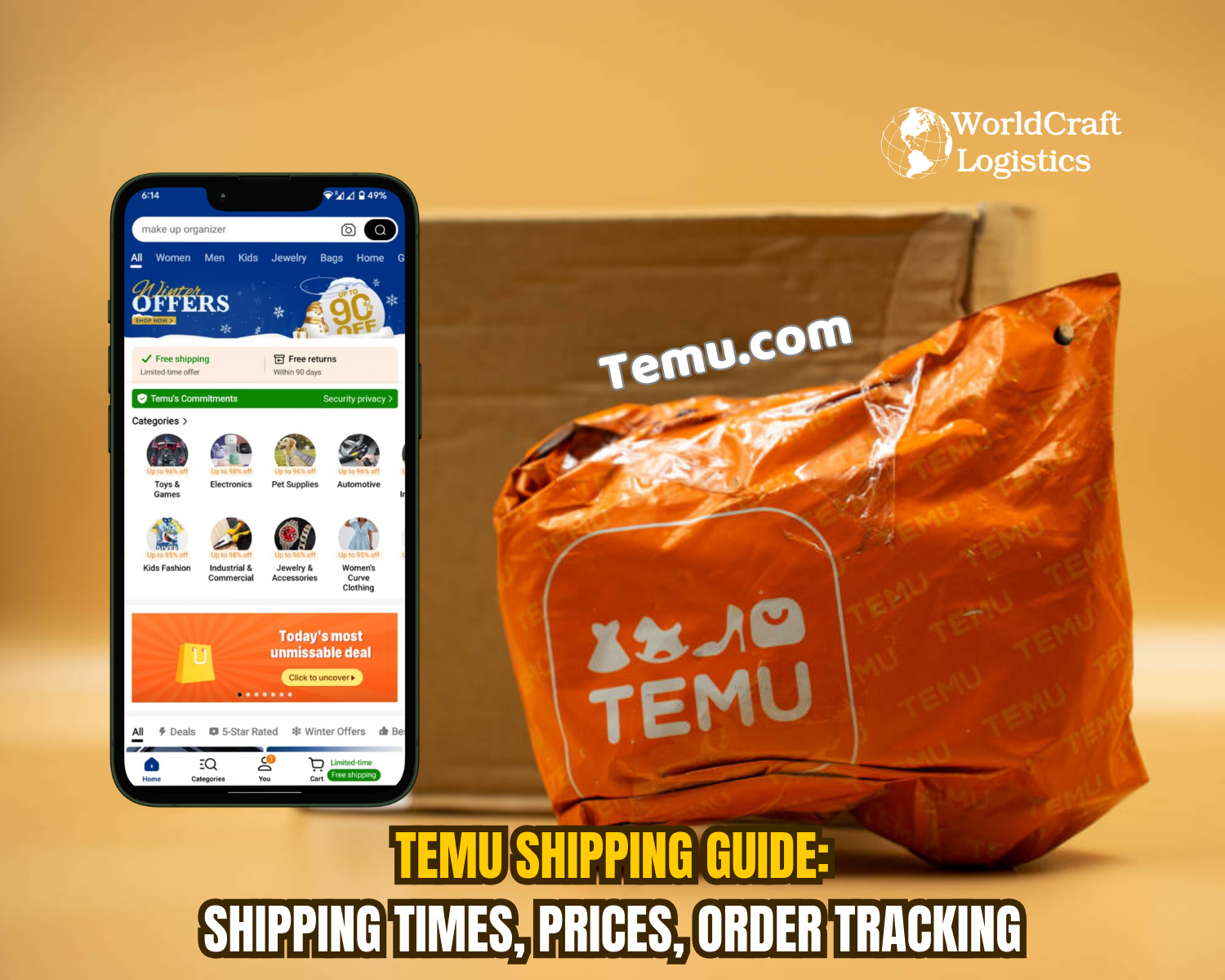
Education
01/05/2025
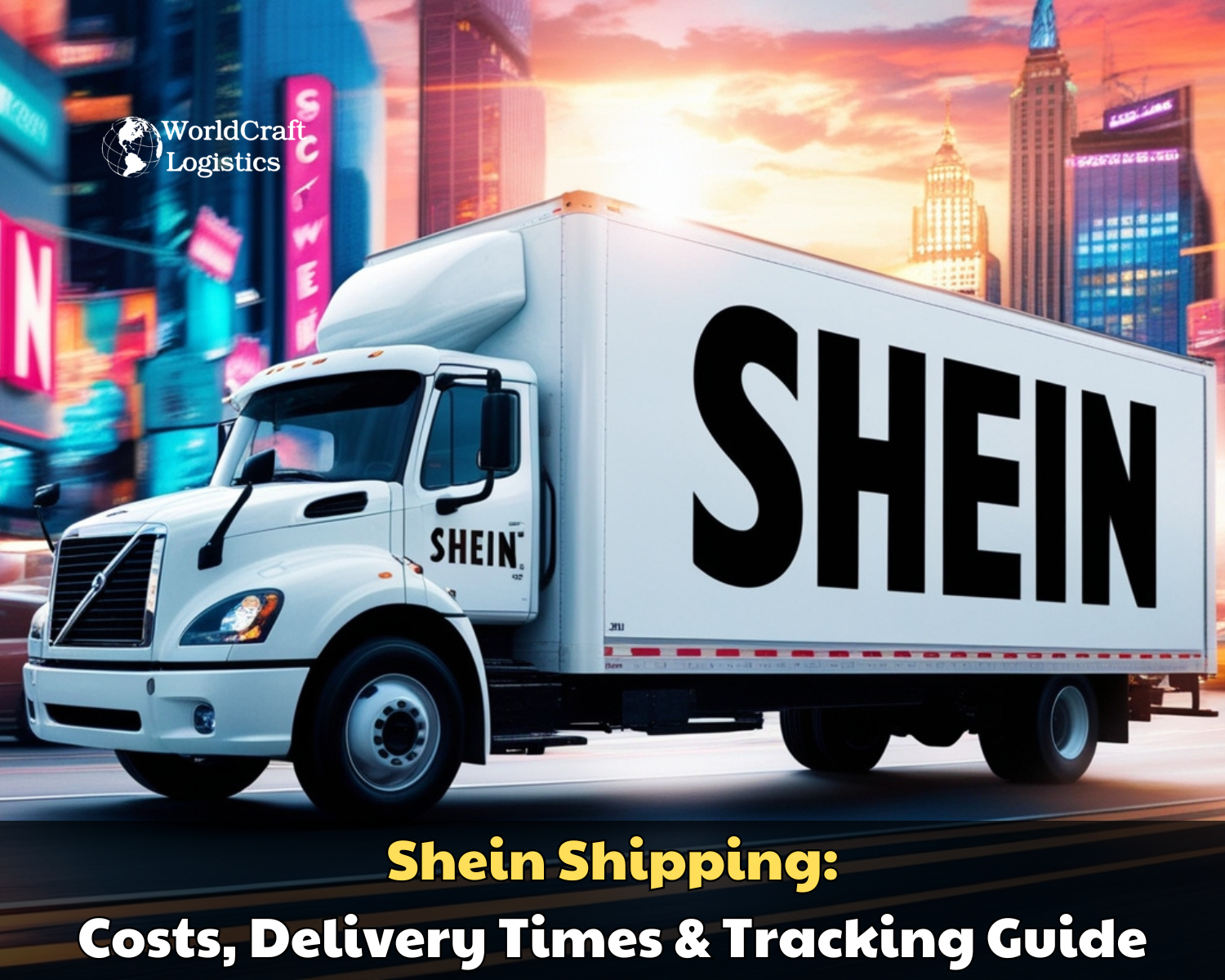
Education
02/18/2025
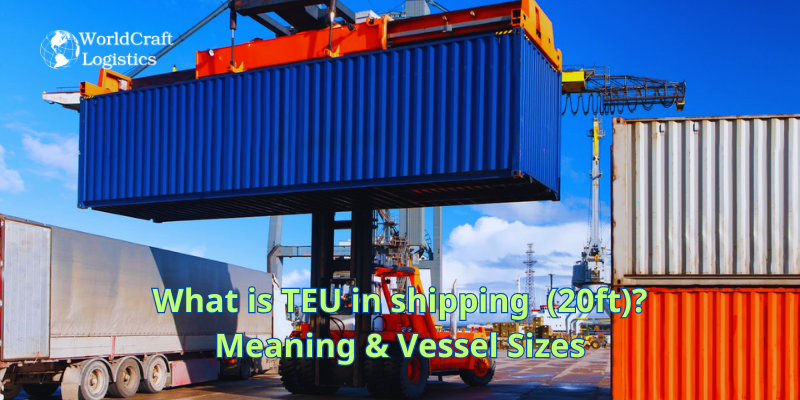
Education
01/01/2024
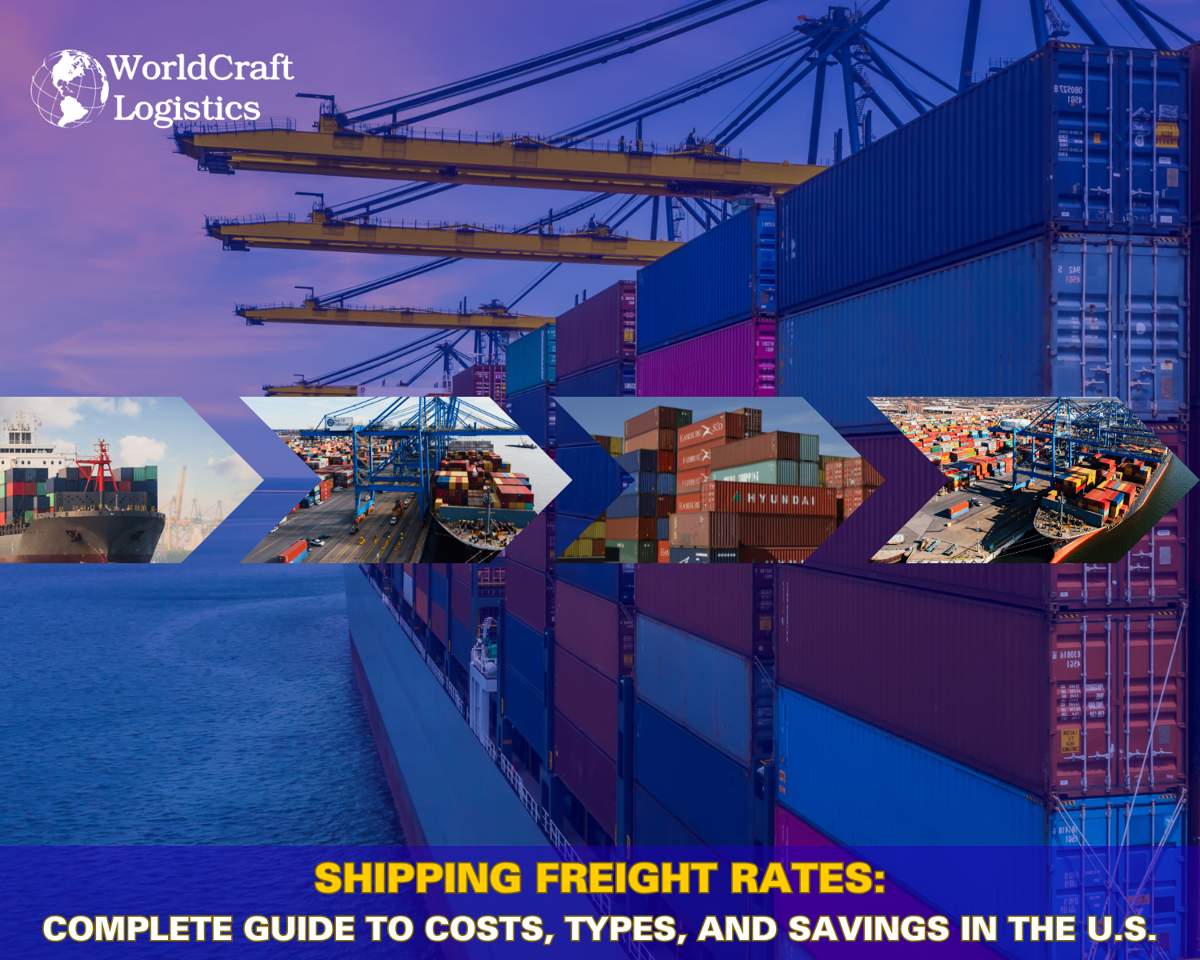
Education
09/09/2025
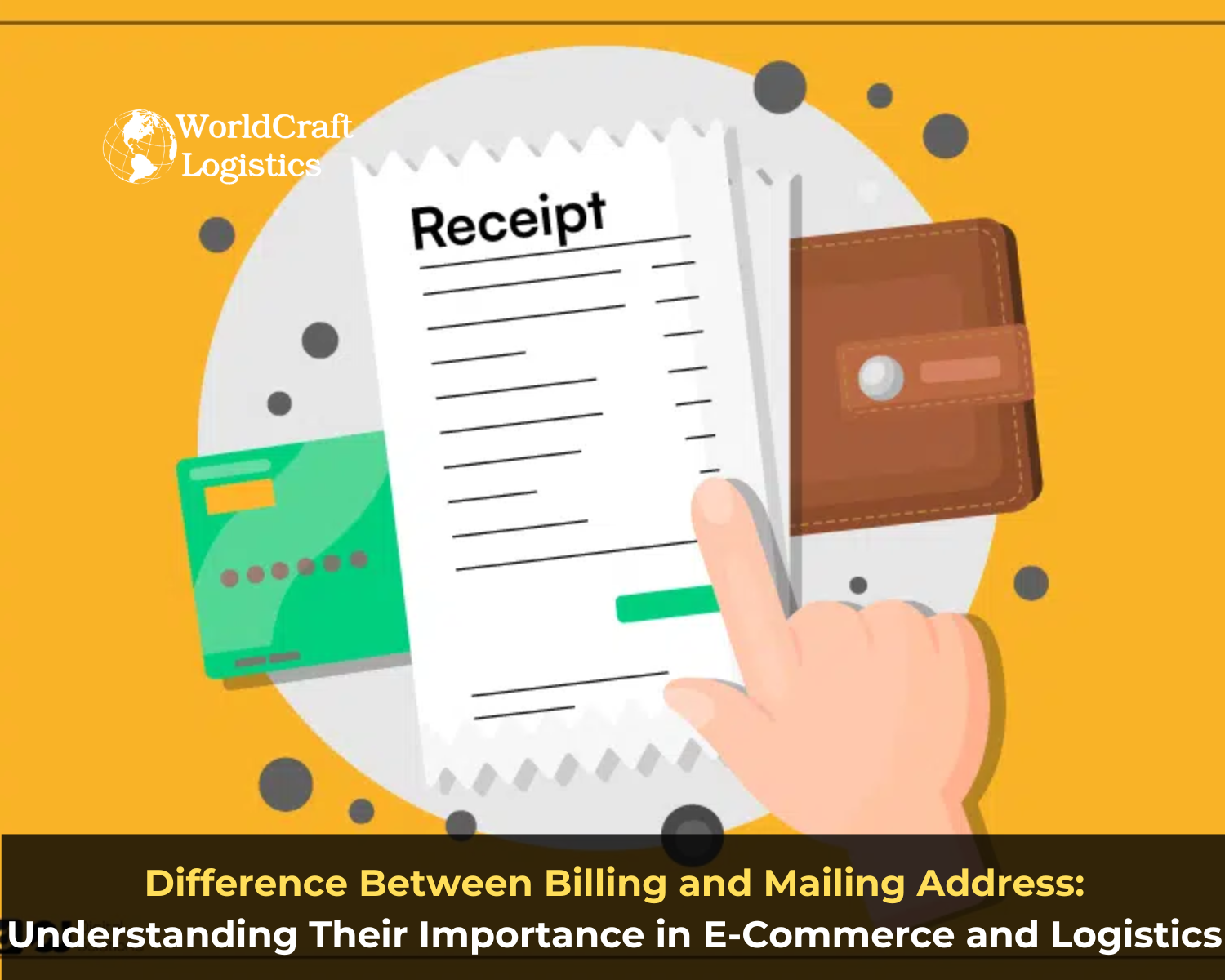
Education
08/28/2024